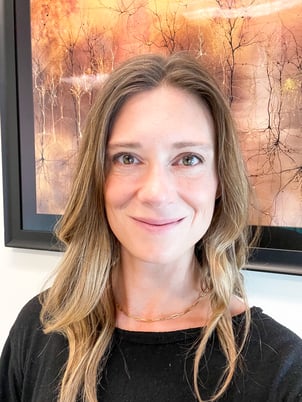Reeve Foundation's Scientific Advisory Board: Cristin Welle, Ph.D.
Join Our Movement
What started as an idea has become a national movement. With your support, we can influence policy and inspire lasting change.
Become an Advocate
Inspiring the Next Generation of Neuroscientists
Welle’s role at the FDA gave her a behind-the-scenes view of neurotechnology translation, particularly as it relates to FDA approvals and regulations. And as a member of the NIH study section that reviews applications to develop new neurotechnology, she’s eager to hear from young scientists who are masterminding neuro devices.
To that end, Welle and three of her colleagues received an NIH grant to develop a curriculum on neurotechnology called “NeuroTech Course.” “The curriculum is completely free to anyone who is interested in developing new neurotechnology to treat a medical condition,” Welle says. “The course includes a series of online lectures from experts across the scientific spectrum from preclinical to clinical to commercialization and venture capital.”
Welle and her team also host annual workshops with hands-on exercises to help people learn the skills they need to translate neurotechnology. While most students hail from academia, the NeuroTech course also attracts people from industry and government.
“The number of applications the FDA receives for new neurotechnology has tripled over the past 15 years,” Welle says. “While some of these devices can be intimidating at first, they have the potential to tap into your nervous system in ways that drugs can't because they allow you to target the right parts of the nervous system at the right time to really speak the language of the brain.”
Welle’s preclinical models suggest that neurotech solutions not only speak the language of the brain, but also have the potential to access the brain’s own healing power. “With these devices, you’re talking to the brain, you’re speaking the language of the brain, and you're helping the nervous system to heal itself,” she says.
Dr. Welle is part of our newly launched Christopher & Dana Reeve Foundation Scientific Advisory Board. It is comprised of senior and junior investigators from across the globe and in numerous scientific sectors and serves as a sounding board for the Foundation, offering innovative ideas and honest feedback as we search for the most promising research and development opportunities that will provide the greatest impact for community members.
 Today
Today